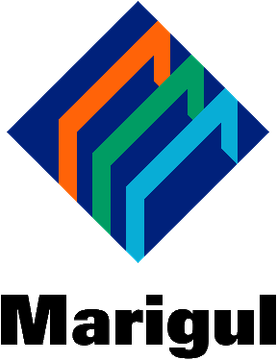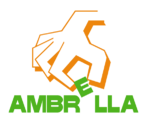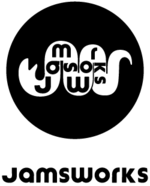| Site Notice |
|---|
|
We have a limited coverage policy. Please check our coverage page to see which articles are allowed. |
Marigul Management
| This article is incomplete. You can help by filling in the missing information. |
Marigul Management was a former second-party video game company partially owned by Nintendo and the Japanese company Recruit. It was founded in 1996 to promote smaller video game developers to come up with original game concepts, in particular for the Nintendo 64.
More than five studios went forward to became part of Marigul Management including Ambrella, Clever Trick, Jamsworks (late in April 2003), Noise, Param, ParityBit and Saru Brunei. Although the company liquidated in May 2003, Ambrella, Jamsworks, Noise and ParityBit continued to make games. Ambrella, the developers of Hey You, Pikachu! became well known for developing several Pokémon spin-offs such as Pokémon Channel and Pokémon Rumble, whereas Noise became popular for the Custom Robo series. Both ParityBit and Jamsworks are known for the Nintendo Pocket Football Club series, and Jamsworks for the Nintendo Culdcept games, as well as DS Uranai Seikatsu.
Additionally Spiral (Co., Ltd.) worked with Marigul Management and Sarugakuchou (latter: debugging support) to create Monster Tactics for Game Boy Color. Game Studio worked with Marigul Management to create the game DT: Lord of Genomes also for Game Boy Color (but originally for Nintendo 64DD with Game Boy Color support with the unreleased 64GB Cable).
Contents
Games
Not published by Nintendo
- DT: Lord of Genomes (developed by Game Studio and published by Media Factory)
- Teo: A development team within Marigul Management was developing a game called Teo for the Nintendo 64DD, collaborating with Hudson Soft and Fujitsu. Fujitsu were considering publishing the game for its official release. It was meant to be a game similar to Hey You, Pikachu! where the player would speak with a flying dolphin called "Fin Fin" using a microphone. The game was based on the PC game Fin Fin on Teo the Magic Planet developed by Fujitsu, but unlike its predecessor, it was eventually canceled.
- Tamagotchi Town (Bandai): 1999 Marigul copyright notice on title screen. Unknown role.
- Oekaki Logic: 1999 Marigul and Sekaibunka-Sha, SUMIRE KOBO copyright notices on title screen. Unknown role.
- En En Angel: Attributed to Marigul company Frognation.[1]
- Non-Calciobit ParityBit games (Derby Stallion series)
Ambrella
- Hey You, Pikachu! - Nintendo 64 (1998)
- Pokémon Channel - Nintendo GameCube (2003)
- Pokémon Dash - Nintendo DS (2004)
- My Pokémon Ranch - WiiWare (2008)
- Pokémon Rumble series
Clever Trick
- Echo Delta - Nintendo 64 (canceled)
Jamsworks
| Main article: Jamsworks |
(Source)
- Meteos - Nintendo DS (2005)
- Calciobit - Game Boy Advance (2006)
- DS Uranai Seikatsu - Nintendo DS (2009)
- Culdcept (Nintendo 3DS) (2012)
- Nintendo Pocket Football Club - Nintendo 3DS (2012)
- Culdcept Revolt (2016)
Noise
- Custom Robo - Nintendo 64 (1999)
- Custom Robo V2 - Nintendo 64 (2000)
- Custom Robo GX - Game Boy Advance (2002)
- Custom Robo - Nintendo GameCube (2004)
- Custom Robo Arena - Nintendo DS (2006)
ParityBit
- Derby Stallion 98 - Super Famicom (NP 1998)
- Calciobit - Game Boy Advance (2006)
- Nintendo Pocket Football Club - Nintendo 3DS (2012)
Param
- Doshin the Giant - Nintendo 64DD (1999)
- Kyojin no Doshin Kaihou Sensen Chibikkochikko Dai Shuugou - Nintendo 64DD (2000)
A GameCube version of Doshin the Giant was later released in 2002, although assisted by Intelligent Systems. It was only localized in Europe.
Saru Brunei
- Shin Game Design- Satoshi Tajiri (founder of Game Freak) publication: Saru Brunei worked on the book binding process, which involved the work of Gento Matsumoto and Megumi Kasai
- Animal Leader - Nintendo 64DD (canceled)
Animal Leader eventually evolved to become Cubivore: Survival of the Fittest for the GameCube in 2002, again assisted by Intelligent Systems. It was only localized in North America.
Spiral
- Monster Tactics (possibly as Spiral Co., Ltd) - see staff credits [2]
Unknown Nintendo teams
Other, unknown
- VRS Racer: Would have used the Nintendo 64 microphone (from the Voice Recognition Unit). [3]
Peripherals
- Nintendo Power (cartridge service)
- 64GB Cable (cancelled)
References




